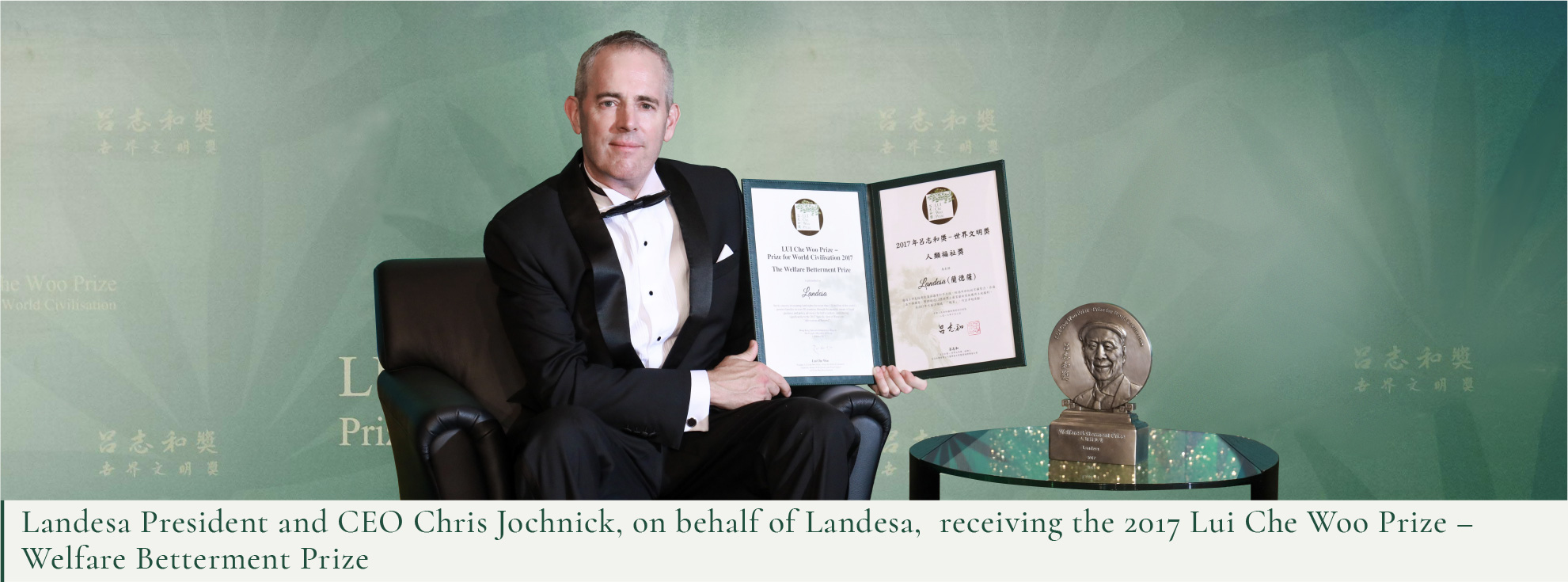End food insecurity across the developing world
With the Covid pandemic still raging across most areas of the world, Lui Che Woo Prize Laureate, Landesa, is reminding the global community of the fundamental importance of land rights in helping to end food insecurity across the developing world.
The pandemic wiped 3.1 percent off of global gross domestic product last year as countries were forced into lock downs to stop the spread of the virus. While economies are beginning to show signs of recovery, it may take years to unravel some of the consequences of the upheaval caused by the pandemic.
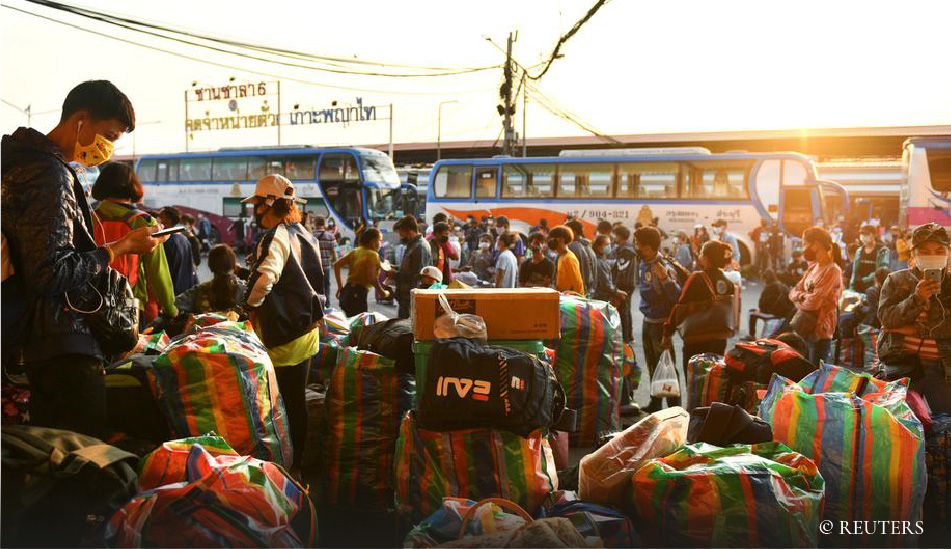
For example, after decades of migration away from rural areas in search of jobs in large cities, that trend abruptly reversed in 2020, as millions of people who suddenly found themselves without jobs returned back to family land in the countryside. The collapse of jobs in India triggered the largest human migration in the country since the Partition in 1947.
It’s not just workers returning from cities to the countryside. Millions of people who had left their countries to work overseas were forced to return, not only putting pressure on resources at home, but also taking away a valuable source of income in the form of overseas remittances. Laos had welcomed about 100,000 repatriated nationals as of June 2020; Myanmar more than 120,000 returnees from Thailand during March-October 2020 and Cambodia more than 100,000 returnees since March 2020.
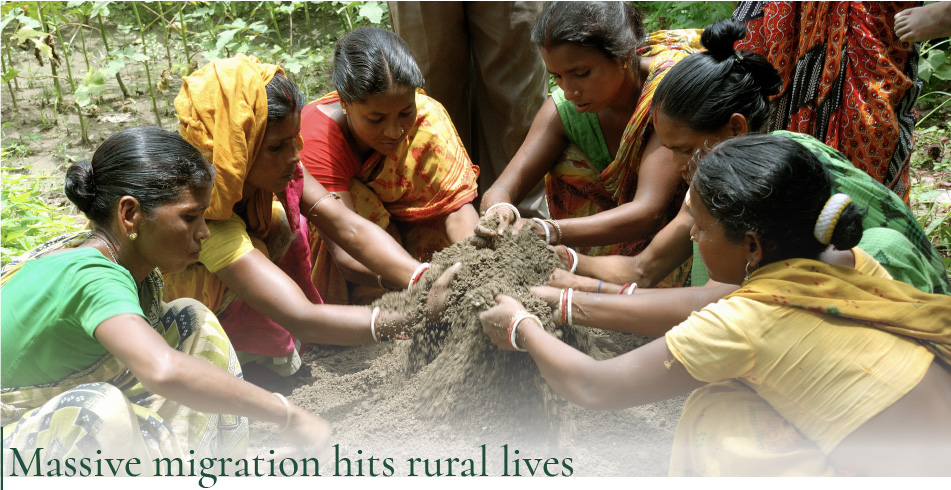
Reverse migration of migrant workers
Landesa, which won the Lui Prize in 2017, is a non-profit organisation dedicated to helping rural communities secure and strengthen the rights to the land they rely on.
“In the new reality of the pandemic, these plots of rural land took on renewed importance as sources of security and economic stability not only for the people already living on them,but for those returnees who found themselves cut off from the economic lifeline of urban centres,” Landesa President and CEO Chris Jochnick wrote in the organisation’s Fall Impact Report.
Over the past year, Landesa has helped more than 60,000 people to obtain land documents in their name and has benefited a further 180,000 through individual and community land rights education. Having undisputed ownership rights gives families and communities an incentive to invest in and improve their output. Landesa has also noted that it has a spin off benefit of creating better stewardship for the environment. Landowners are more likely to focus on crop rotations to improve soil health and on planting trees.

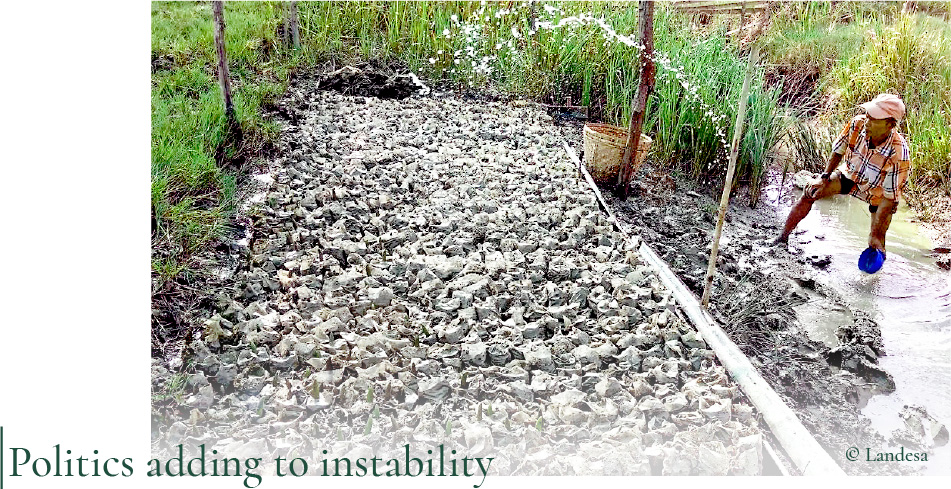
Challenges of Covid-19
The Fall Impact Report highlights some of the organisation’s work in Southeast Asia, where issues such as political instability have added to the challenges of Covid in advancing its programmes.
Myanmar had been a success story for Landesa and it’s working hard to hold onto those gains despite the turmoil caused by a military coup earlier this year. Prior to the upheaval, it had been making steady progress in reallocating confiscated land to landless families and by December of last year, it estimates that 1.5 million of the most vulnerable residents had secured land rights. While the coup has created headwinds, unseating many of the policymakers who were the strongest backers of Landesa’s efforts, the organisation said many of the families helped by its programmes have managed to hold onto their gains.
In the Ayeyarwady region, 94 percent of community leaders who were surveyed said they had not seen community members lose land. They have the legal security and economic assets to take a longer-term time horizon on their small holdings, such as planting fruit orchards, or seedlings for timber.

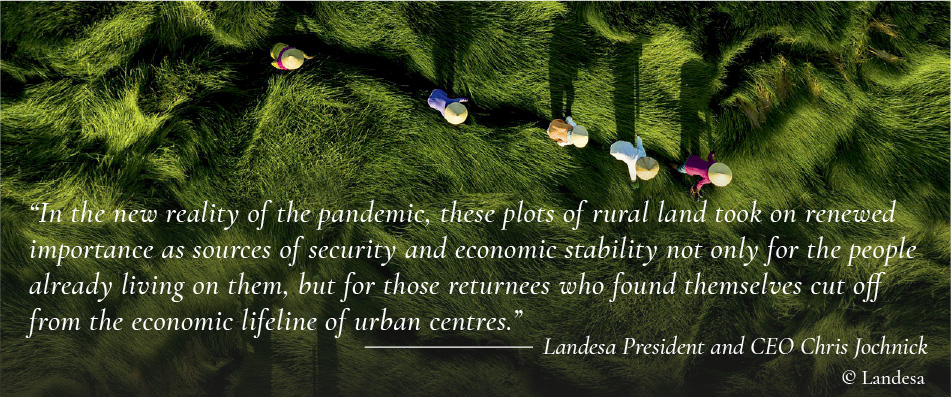
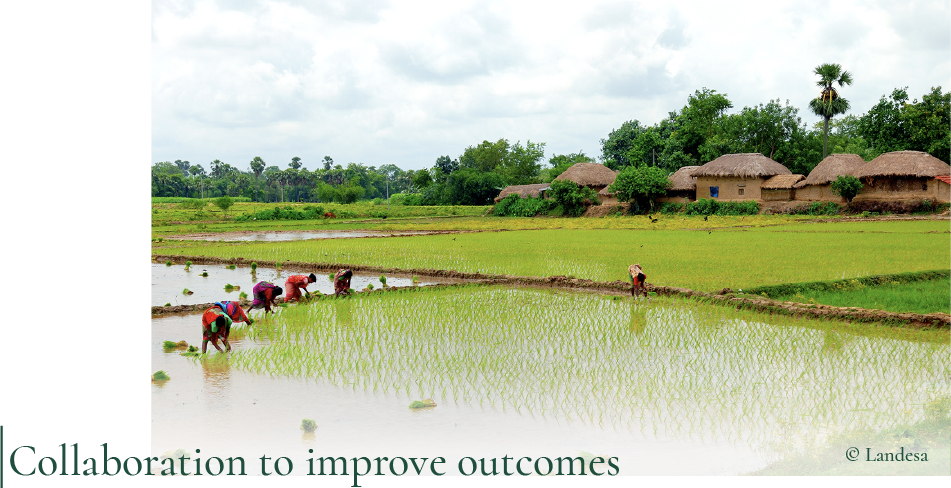
A new programme to strengthen land rights of some 12 million rural residents
Landesa is also expanding its work in Cambodia, establishing a new programme to strengthen land rights of some 12 million rural residents. It says that more than 40 years after the fall of the Khmer Rouge regime, many still lack secure land titles, which means they do not have the legal foundation to build their farms. Recognising that cooperation can lead to better outcomes, Landesa is partnering with local and regional associations that have an established history of working in Cambodia and with its institutions. This coalition represents about 25 percent of provinces in the country.
“By connecting these organisations under Landesa’s leadership, land rights experts and advocates across the country can share their findings and experiences,” the report said. Two years since the outbreak of Covid, there are signs of economic improvement, with the International Monetary Fund tipping a 5.9 percent rebound in global output this year.
However, the recovery is patchy and the relatively rosy headline figure masks worrying trends, such as soaring food inflation and the fact that in many countries employment has still not returned to pre-pandemic levels. Vaccine rollout has also been unequal, with many developing nations lagging far behind developed economies, many of which are now providing booster shots to their populations. As a result, they remain vulnerable to further lockdown restrictions.
Securing land rights isn’t a quick fix solution to the forecasts for rising food insecurity, but it will build the basis for a long-term sustainable future for some of the world’s most vulnerable communities.
